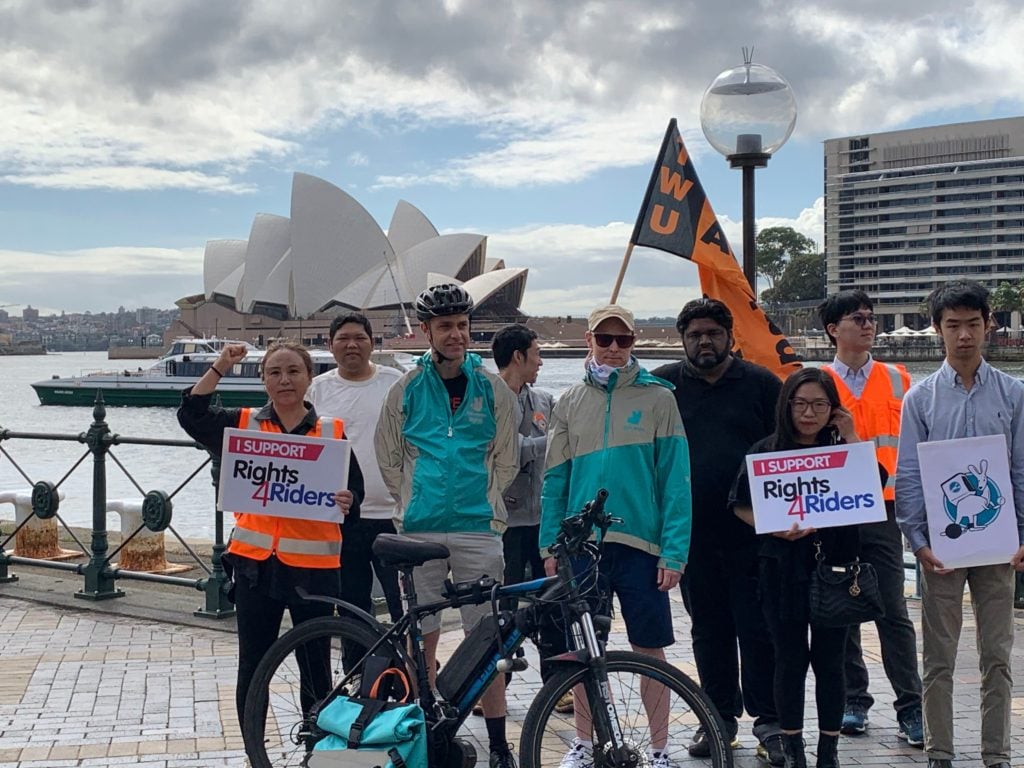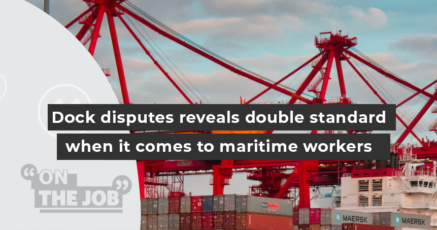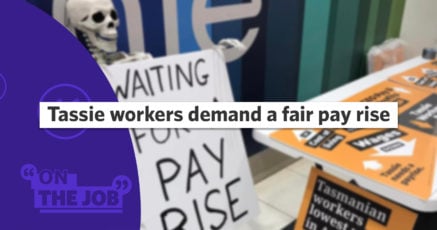Alexander Roxborough has done a lot of kilometres on his bike. In his four years as a Deliveroo rider, he’s knocked on thousands of doors all over Sydney delivering meals to hungry customers.
“I’ve done 10,000 orders. I’m one of the longest serving riders in Australia and I was paid $900 by Deliveroo from their Thank You Fund – that’s the second lowest amount riders got paid.”
The veteran rider estimates that Deliveroo have shortchanged him thousands of dollars in pay since he began working for them.
“I think a conservative estimate of somebody working 30 hours a week is around $15,000 per year, so I should have been paid 40 to 50 thousand dollars more than I have been paid – and I got $900.”
Welcome to the world of the gig economy rider, where even the hardest working, most loyal workers are as disposable as the food wrappers they deliver to your door day and night.

Mr Roxborough was part of a protest by Deliveroo riders held at Circular Quay in Sydney last Friday to put pressure on large institutional investors to avoid tipping money into Deliveroo when the company lists itself on the stock exchange on Wednesday, March 31st.
The pressure is building on the Amazon backed delivery platform, with major investment firms in the UK such as Aviva Investors, Rathbones, Legal & General and Standard Life Aberdeen all declaring that the won’t invest in the Deliveroo float on ethical grounds.
Manchester United and England star, Marcus Rashford has emerged as a leading social justice activist on issues of child poverty. He has also joined the campaign to hold the tech platform giant to account for its treatment of workers.

Deliveroo riders in Australia want local investors to take a similar position, raising their voices in protest about Deliveroo’s underpayment of workers, lack of safety for riders and complete absence of responsibility for their workers who do get injured or who have been killed whilst working for the company.
Jack Boutros is a strategic campaigner with the Transport Workers Union (TWU) and he told On the Job that investors in Australia can’t just turn a blind eye to the shabby employment history of companies like Deliveroo.
“This is a company in which workers in this country today work for in their thousands and are paid $10 an hour on average with no entitlements,” Mr Boutros said.
“I’m sure you have heard there’s been some tragic incidents involving workers being killed in the food delivery sector. None of those workers has even basic entitlement to workers compensation and that’s not to mention other things like sick leave, protection from unfair dismissal or the right to join unions.”
The Deliveroo riders and the TWU are encouraged by the decision of large offshore investment firms giving Deliveroo and other bad employers a miss. According to Jack Boutros, they also want to see immediate change on the ground for workers.
“It’s not just about targeting investors, it’s also about raising awareness about the ongoing unsolved issues surrounding worker exploitation at companies like this.
“This is really one of the biggest existential threats to the Australian way of working life and working conditions throughout the globe at the moment.
“The transport sector is the hardest hit. It is most prevalent in the transport industry through the emergence of rideshare, food delivery and the parcel delivery sector, but by no stretch of the imagination is it limited to transport and is very widely expected to be all the more common in all sectors of the economy.”
Meanwhile, food deliver workers like Alexander Roxborough have to keep working in dangerous conditions and for meagre wages, and it’s taking its toll on him.
“This job is dangerous. I had an accident recently where I fell off may bike and the injury put me out. I wasn’t able to work in that time, I wasn’t able to other things in my life. Didn’t get any insurance or assistance [from Deliveroo],” Mr Roxborough said.
Jack Boutros believes that consumers have a role to play in improving the situation for delivery riders.
“There are a number of new gig economy platforms popping up now which are actively negotiating decent working standards and really trying to build a strong footing and doing that in a manner that isn’t based on severe and unacceptable, exploitation of delivery workers.
“Obviously, tipping doesn’t deal with the real structural issues of a work of not having life, but it does help support workers who are for the time being in a desperate situation.”








SHARE:
Investors are saying no to Deliveroo – here’s why